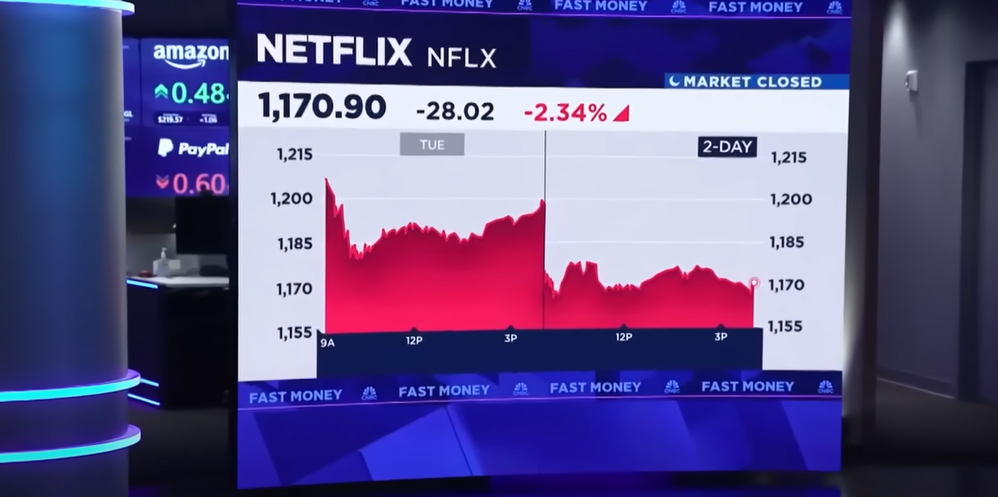This time, Netflix is at the epicenter of a cultural storm that significantly combines political ideology, corporate identity, and social media outrage. After Elon Musk urged his followers to cancel their subscriptions, calling the platform’s content “woke propaganda,” the company, which was long considered a pioneer of digital storytelling, saw billions of dollars deducted from its market value.
The controversy started when a re-discovered clip from the animated Netflix series Dead End: Paranormal Park, which has a transgender lead, provoked conservative outrage. Netflix was accused by right-wing influencers of “pushing an agenda” through its kid-friendly programming. With a post that said, “Cancel Netflix for the health of your kids,” Musk, whose social media platform X gives him access to hundreds of millions of followers, joined the discussion. The phrase swiftly became a rallying cry that reverberated in both political forums and online discussion threads.
The next day, Netflix’s stock dropped 4.3%, wiping out almost $15 billion in market value. The scene was eerily reminiscent of the Bud Light scandal in 2023, when boycotts due to alleged ideological content caused actual financial tremors. However, experts quickly emphasized that Netflix’s position is different because of its user base, global presence, and variety of revenue sources, which make it incredibly resilient. Nevertheless, profit is determined by perception, and the harm to its brand narrative is unquestionably substantial.
Netflix — Corporate Overview
| Category | Details |
|---|---|
| Company Name | Netflix, Inc. |
| Founded | August 29, 1997 |
| Founders | Reed Hastings and Marc Randolph |
| Headquarters | Los Gatos, California, United States |
| CEO (as of 2025) | Ted Sarandos |
| Industry | Entertainment, Streaming Media |
| Market Value | Approximately $482.9 Billion (as of October 2025) |
| Subscribers | Around 300 Million (as of Q4 2024) |
| Recent Controversy | #CancelNetflix movement linked to Elon Musk’s public call for boycott |
| Stock Performance | Fell 4.3% following Musk’s cancellation campaign |
| Reference | CNBC Report on Netflix Boycott |

This controversy has more than one show at its core. Netflix’s inclusive storytelling has drawn praise and criticism in recent years. Because of initiatives like Heartstopper, Sex Education, and Orange Is the New Black, the platform has a significant impact on how the general public views gender, sexuality, and identity. That same dedication, though, has come under increasing criticism from conservative organizations who believe that representation goes too far. Particularly in a political environment where entertainment frequently reflects ideological division, Musk’s campaign has turned into a lightning rod for these annoyances.
This cultural saga made Dead End: Paranormal Park creator Hamish Steele an unwelcome protagonist. Right-wing accounts shared screenshots after Musk’s post, alleging that Steele made fun of conservative activist Charlie Kirk after his passing. Steele vehemently refuted the allegations, describing the story as “deliberately twisted.” However, the backlash quickly grew, demonstrating how online indignation can skew reality and spread false information incredibly quickly.
Financial analysts have taken a noticeably cautious stance amid the commotion. “A day of noise doesn’t break a company built on decades of audience loyalty,” said Guy Adami, a CNBC contributor. This opinion was supported by Wedbush Securities analyst Alicia Reese, who clarified that the boycott’s timing made it unlikely to have a major effect on Netflix’s next fiscal quarter. Launched in late 2023, the company’s expanding advertising tier has produced strong revenue thus far, significantly offsetting short-term fluctuations in subscription numbers.
However, narrative control—rather than economics—is the real problem. With every new controversy serving as a vote on social values, streaming platforms have progressively transformed from centers of entertainment into arenas of cultural conflict. In addition to questioning Netflix’s programming choices, Musk’s post raised issues about who controls contemporary storytelling and what messages are considered appropriate when it went viral. Since both sides see the platform as a representation of a larger cultural identity, the argument has shifted from cartoons to ideological influence.
This dynamic has been dramatically amplified by social media. Using hashtags like #CancelNetflix and #ProtectOurKids, users post screenshots of their cancellation confirmations on Reddit and TikTok, while opposing users respond with #KeepNetflix and #StreamWithPride. The increasingly tribal character of online behavior, where consumer decisions become political statements, is reflected in this dichotomy. In this way, canceling your Netflix subscription is more about expressing your beliefs than it is about saving money.
It’s interesting to note that many subscribers who joined the boycott had previously voiced their dissatisfaction with other problems, such as growing subscription costs, limitations on password sharing, and a perceived drop in the caliber of the content. Long-time Netflix users became resentful after the streaming service decided to crack down on shared accounts in 2023, drastically reducing multi-user households. Many people found Musk’s call to action to be little more than a convenient moral defense of an already emotional or financial choice.
However, Netflix continues to dominate the market in spite of the cancellations. It has tremendous clout thanks to its 300 million subscribers, and its investment in varied storytelling keeps drawing viewers from all over the world. Successful regional series from South Korea, Spain, and Nigeria are part of the company’s global catalog, reinforcing its function as a conduit for intercultural narrative. While some argue that Netflix has a tendency to be “too progressive,” others view this as a strength that reflects the complexity of contemporary society rather than dictating it.
Elon Musk’s impact on public discourse is the most illuminating feature of the controversy. He successfully converted his personal beliefs into statements that moved the market as the owner of X. In less than a day, his post urging followers to cancel Netflix received over 37 million views. The discussion had changed from one animated series to a full-fledged political statement in that time. It illustrates how social media outrage has become incredibly effective, able to shape narratives more quickly than businesses can react.

